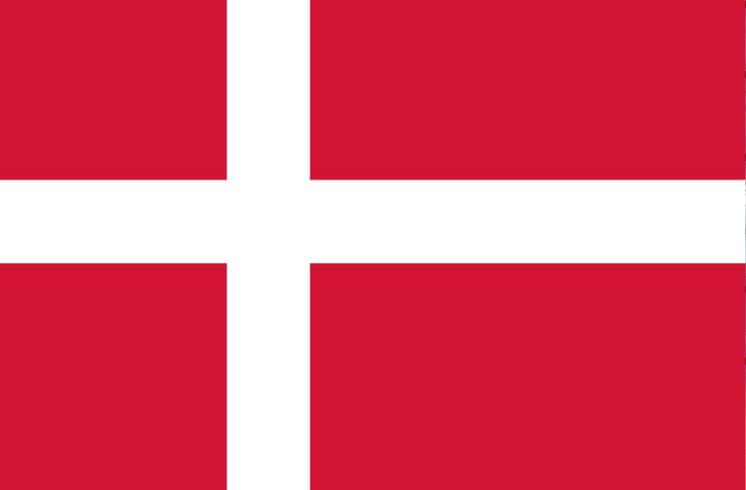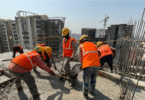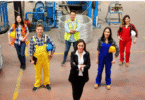Denmark’s Positive List is a list of jobs that don’t have enough workers in the country. The Danish government uses it to find skilled workers from other countries. If your job is on the list, you can get a work and residence permit more quickly and easily.
In April 2025, Denmark made an important update to the Positive List. More jobs were added, especially in healthcare, IT, construction, skilled trades, and business services. This update shows what kinds of workers Denmark needs now and helps support the country’s long-term economic plans.
For global job seekers, this update presents an opportunity. Skilled professionals whose occupations are now included can benefit from streamlined entry into the Danish labor market.
What is Denmark’s Positive List?
Denmark’s Positive List is an official list of jobs that don’t have enough workers in the country. It plays an important role in the immigration system by helping bring in skilled workers from other countries. By listing jobs that are always in high demand, the Positive List helps Denmark stay strong both economically and socially.
The list is divided into two main categories, each targeting a specific level of qualification:
Positive List for Higher Education Positions
This category includes jobs that need a university degree, such as a bachelor’s, master’s, or professional degree. Examples are engineers, doctors, IT experts, and teachers. To qualify, you must have the right degree and a job offer from a Danish employer.
Positive List for Skilled Work Positions
This category includes jobs that need vocational or technical training instead of a university degree. Examples are electricians, carpenters, machine operators, healthcare assistants, and other skilled trades. To qualify, you must show proof of your training or work experience that matches Danish standards.
Major Changes in the 2025 Update
The 2025 update to Denmark’s Positive List added more jobs and made the list more detailed. This change shows that the Danish government is serious about meeting new job market needs and helping the economy grow by bringing in skilled foreign workers.
Expansion Across Industries
The updated list now includes more types of jobs from different sectors. This change helps fill worker shortages in both high-skill areas and hands-on technical jobs.
Sectors with High Demand
The update highlights growing demand in major industries, including:
- Information Technology (IT): To support digital infrastructure and innovation.
- Healthcare: To address increasing needs in elder care, hospital staffing, and community support.
- Construction and Skilled Trades: Driven by infrastructure development and housing demands.
- Agriculture and Environmental Services: With roles for landscape gardeners and crop growers.
- Administrative and Business Services: To support the commercial and operational needs of Danish businesses.
List of Newly Added Professions (Skilled Work Focus)
The 2025 update to Denmark’s Positive List adds many skilled jobs across important industries. Each job on the list helps fill a specific worker shortage and makes it easier to get a Danish work and residence permit. Below is a list of the new jobs, grouped by industry, with their official job codes.
Healthcare & Social Care
This sector shows Denmark’s increasing need for professionals in hospitals, institutions, and private care settings.
- 532110 – Social and Health Care Employee (Hospitals and Institutions)
- 532210 – Social and Health Care Employee (Personal Homes)
- 532120 – Social and Health Care Assistant (Hospitals and Institutions)
- 532220 – Social and Health Care Aide (Personal Homes)
- 321100 – Audiology Assistant
Engineering & Technology
Technical expertise remains in high demand, particularly in production, construction, and medical technology.
- 311400 – Medico Technician
- 311900 – Production Technologist
- 314200 – Agricultural Technician
- 311200 – Construction Technologist
- 313900 – Food Technician
- 311110 – Laboratory Assistant
Construction & Skilled Trades
The update strengthens the focus on physical infrastructure and mechanical services by adding key construction and trades roles.
- 711510 – Carpenter
- 711210 – Bricklayer
- 722100 – Blacksmith
- 723110 – Auto Mechanic (Passenger Cars and Vans)
- 723300 – Agricultural Machinery Mechanic
- 722300 – Industrial Technician
- 741100 – Electrician
- 741300 – Electricity Allocation Technician
- 742100 – Electronics Mechanic / Service Technician
- 818290 – Process Operator (Steam Engine and Boiler Plants)
- 815500 – Process Operator (Fur and Leather Production)
- 818910 – Process Operator (Incineration, Water Supply, Wastewater Treatment)
Agriculture & Environmental Work
This group supports rural development and environmental maintenance efforts.
- 611100 – Farmer (Field Crops and Vegetables)
- 611400 – Farmer (Mixed Crop Grower)
- 611320 – Greenkeeper / Landscape Gardener
- 921200 – Agricultural Assistant (Manual Livestock Labor)
Business, Administration & Finance
To sustain operational functions, Denmark seeks skilled professionals in finance, logistics, and legal services.
- 331300 – Bookkeeper
- 331300 – Accounting Clerk / Assistant
- 333110 – Forwarding Agent
- 333190 – Import and Export Expert
- 333430 – Real Estate Administrator
- 333410 – Real Estate Agent
- 332200 – Sales Consultant
- 332200 – Sales and Account Supervisor
- 332300 – Buyer
- 334200 – Legal Secretary
- 335900 – Port Assistant
Personal Services & Clerical Work
These professions support daily services and administrative workflows.
- 512000 – Chef
- 514100 – Hairdresser
- 343200 – Flower Decorator
- 341300 – Parish Clerk / Parish Helper
- 431240 – Insurance Clerk (Technical Case Processing)
- 411000 – Office Assistant
Visa Options for Eligible Professionals
Professionals with jobs on Denmark’s Positive List can apply through several fast-track visa options. These visa schemes make it easier for skilled workers to move to Denmark and start working quickly. Each option fits different job situations and comes with its own set of benefits. Below is a guide to the main visa options available.
Positive List Scheme
The Positive List Scheme is the main way for skilled workers to move to Denmark if their job is on the official shortage list. If your job is listed and you have a job offer that meets Danish pay and work rules, you can apply for a work and residence permit through this scheme.
Features
- Available for both Higher Education and Skilled Work lists.
- Requires a specific job offer before applying.
- Offers a renewable residence permit tied to the duration of employment.
- Supports accompanying family members.
Fast-Track Scheme (for Certified Employers)
The Fast-Track Scheme allows certified Danish companies to hire international professionals quickly and flexibly. This model is ideal for high-demand positions where time-sensitive recruitment is essential.
Eligibility requirements
- The employer must be certified by the Danish Agency for International Recruitment and Integration (SIRI).
- The position must meet salary and contract standards.
Benefits
- Enables quick job start, often within days.
- Provides multiple entry/exit options during the permit period.
- Streamlines the residence and work permit process.
Pay Limit Scheme
The Pay Limit Scheme targets professionals offered high-salary positions in Denmark, regardless of whether the occupation appears on the Positive List.
Requirements
- A valid job offer in Denmark.
- An annual salary that meets or exceeds the minimum pay threshold, which is adjusted yearly. For 2025, this limit is expected to be around DKK 476,000–500,000 (subject to official confirmation).
Advantages
- No requirement for the job to be on the Positive List.
- Allows access to residence and work permits based solely on salary criteria.
- Suited for senior professionals and specialists.
Researcher Visa
The Researcher Visa is designed for foreign nationals hired to conduct research at public or private Danish institutions. This includes postdoctoral researchers, guest researchers, and academics.
Conditions
- A research agreement with a recognized institution in Denmark.
- Clear outline of research scope and duration.
Benefits
- Provides residency rights for the researcher and accompanying family.
- Supports short- and long-term research stays.
- Offers pathways to permanent residence under certain conditions.
How to Apply
If you want to work in Denmark through the Positive List, you must apply using the official process. The main place to do this is Denmark’s immigration website, nyidanmark.dk. There, you can submit your application and find the latest information and instructions.
Check Eligibility
Start by checking if your job is on the current Positive List (either for Higher Education or Skilled Work). Look at the requirements for your job, including education, work experience, and salary. You can use the search tool on nyidanmark.dk to confirm this information.
Secure a Job Offer
You must have a concrete job offer from a Danish employer before applying. The employment contract must comply with Danish standards regarding salary, working hours, and job conditions.
Select the Correct Scheme
Determine which visa or work scheme best suits your employment situation:
- Positive List Scheme
- Fast-Track Scheme (if your employer is certified)
- Pay Limit Scheme
- Researcher Visa
Gather Required Documentation
Prepare the necessary documents, including:
- A valid passport
- Signed employment contract
- Educational qualifications and relevant work experience
- Proof of salary and job duties
- Completed application form (online or printable version)
- Employer declarations (if required)
Submit Your Application
Go to the Apply page on nyidanmark.dk, choose the appropriate scheme, and follow the online submission process. Some schemes allow you to apply online via SIRI’s digital self-service system, while others may require uploading documents manually.
Pay the Application Fee
Submit the required application fee during the process. Fees vary by scheme and applicant type. Ensure your payment receipt is attached to your application to avoid delays.
Attend Biometrics Appointment
After submission, applicants must record biometric data (photo, fingerprints, and signature) at a Danish diplomatic mission or SIRI office. Appointments are typically required within 14 days of submission.
Await Processing and Decision
Processing times vary based on the scheme and complexity of the case. Most applications under the Positive List are processed within one to three months. You will receive a written decision once processing is complete.
Frequently Asked Questions
Can I apply without a job offer?
No. You must have a valid job offer from a Danish employer before you can apply under the Positive List or related visa schemes.
How long does it take to process an application?
Processing times vary but are typically is from 1 to 3 months. Fast-Track applications may be processed more quickly.
Where do I apply for a Danish work visa?
You apply online through nyidanmark.dk, Denmark’s official immigration website. It provides full instructions, forms, and fee details.
Do I need to speak Danish to qualify?
Language requirements depend on the job. Some roles, especially in healthcare or customer-facing positions, may require Danish proficiency. However, many technical and IT roles accept English-speaking professionals.
Conclusion
The 2025 update is a great chance for skilled professionals who want to grow their careers and enjoy a high quality of life in a safe, well-run European country. With easy visa options, strong worker rights, and clear rules, Denmark provides a smooth and supportive process for those who qualify.






